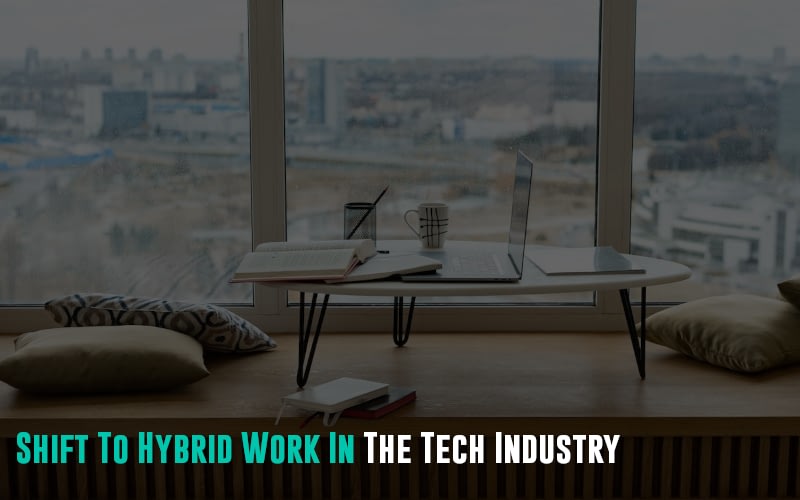Since the pandemic of 2020, the world has changed considerably. Everything from how we go about our daily lives, socialize, travel, and work. This change has impacted everyone worldwide, from lives lost to fundamental changes in how we go about our daily lives. As a software engineer who has also been affected by the pandemic changes, I’ve had to adapt to it too. I have a good beat on where I see the industry investing and moving towards. Here are my predictions for the tech industry and, to a lesser degree, the working world is moving a part of the shift to hybrid work in the tech industry.
Featured Image Credit
Hybrid Work Enables Adaptability

The pandemic forced employers worldwide to make sacrifices, change policies, and adapt to the fact that we all don’t need to sit in the same office to get work done. Some enjoyed this news; some hated it. We all did it for the sake of progress. Software that enabled remote collaboration and allowed employees in the tech industry to continue to be productive skyrocketed in usage. Software from Microsoft Teams, Slack, Discord, and Zoom became pivotal to our daily lives. Employers struggled to figure out good ways to keep their businesses afloat. (Given they had a choice of allowing their employees to be remote). Some slower than others, we all moved to a new way of working with each other remotely.
Fast forward several years, the pandemic (while not entirely gone) is slowing. Employers are starting to bring folks back to the office. Not all tech workers will appreciate this move, however. Employers will face resistance to this move and employee dissatisfaction without flexibility. Today’s world has adapted to the “hybrid model” that allows those who work well remotely the capability and those who desire a work environment, an office. Different employers will wiggle and toil with different work policies and rules to adapt to this hybrid direction; however, I suspect the hybrid work model is here to stay. Hybrid work has enabled those with families to spend more time with their loved ones, folks who cannot afford high-cost living areas to live where they desire, and others to still be productive while seeing more of the world.
Tech Workers Desire Hybrid Work

As time stretches on, the ability to work flexibly will be strongly desired. Employers that want to bring employees back to the office will need to offer distinct advantages instead of allowing their workers to work remotely. These advantages could include four-day workweeks, higher pay, or a focus on spending time with others with a heavy emphasis on social activities.
In the near future, Most employers will move to downsizing their office spaces and allowing remote work as long as you work remotely in the same country you were hired in. (This is more of country tax regulations, country citizenship, and laws than an employer policy). Products and automation will continue to drive us to be successful remotely. The world will push more towards adaptability in the industry and enable focused remote work by providing pop-up or rentable work offices with reliable internet. Laptops will be more sought after than ever for work due to their portability which allows us to work on the go. Not to mention work policies and regulations will move to become more flexible around remote work.
Policies Will Adapt to Support Hybrid Work

Slowly, we will all move to the new normal of understanding, considering, and defining remote work policies. In some ways, I suspect this will eventually start pushing world policy to enable a lot more flexibility around remote work tourism. Also, how taxes are affected by international remote work. Socially, even the skeptical will begin to move towards acceptance as the industry continues to prove that it can move forward remotely, and there is a demand for more flexibility despite the pandemic coming to a close.
Of course, this is excellent news for the world of travel and a breath of fresh air. No doubt it will open the door for many new solutions, products, and options across the globe. The hybrid world of work is here to stay; employers who fight it directly will only see a loss of labor, while those who adapt to it will prosper. For us, tech industry workers, expect to have the flexibility you need to work successfully. Be ready to fight for your right to find the right environment (whether it is part remote, fully remote, or fully in an office).
How about you? Do you prefer to work in the office or remotely?

